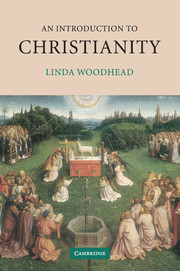Book contents
- Frontmatter
- Contents
- List of illustrations
- Introduction
- Part I The Christian revolution: ascent to power
- 1 How Christianity came to power
- 2 Churches of east and west in the early Middle Ages
- 3 Christendom : the western church in power
- Part II The modern revolution: compromises with power
- Conclusion
- Chronology
- Notes
- Index
- References
2 - Churches of east and west in the early Middle Ages
Published online by Cambridge University Press: 05 February 2015
- Frontmatter
- Contents
- List of illustrations
- Introduction
- Part I The Christian revolution: ascent to power
- 1 How Christianity came to power
- 2 Churches of east and west in the early Middle Ages
- 3 Christendom : the western church in power
- Part II The modern revolution: compromises with power
- Conclusion
- Chronology
- Notes
- Index
- References
Summary
He who has founded his church in the west, his church has not reached the east; the choice of him who has founded his church in the east has not come to the west … My church is superior … to previous churches, for these previous churches were chosen in particular countries and in particular cities. My church shall spread in all cities, and its gospel shall reach every country.
The previous chapter explored the way in which dreams of universal dominion helped shape the fortunes of early Christianity and support the rise to power of the Catholic church. Such dreams lost nothing of their allure as antiquity gave way to the Middle Ages. Men of power still imagined themselves at the helm of great empires, and they were men of religion as well as of politics – for as yet there were no secular empires, only religious ones.
Yet the Christian empire was threatened by competing powers, both religious and political. The words above are those not of a Christian but of Mani (216–76), the founder of a new universal religion that, he believed, would supplant those that had come before, including Christianity. Mani's dream faltered because his religion failed to form an adequate alliance with political power. The next great world empire, the Islamic, did not make the same mistake. Its dramatic rise to power from the seventh century, and its rapid seizure of territories belonging to the Roman empire, would have serious consequences for the development of Christianity.
- Type
- Chapter
- Information
- An Introduction to Christianity , pp. 61 - 104Publisher: Cambridge University PressPrint publication year: 2004

